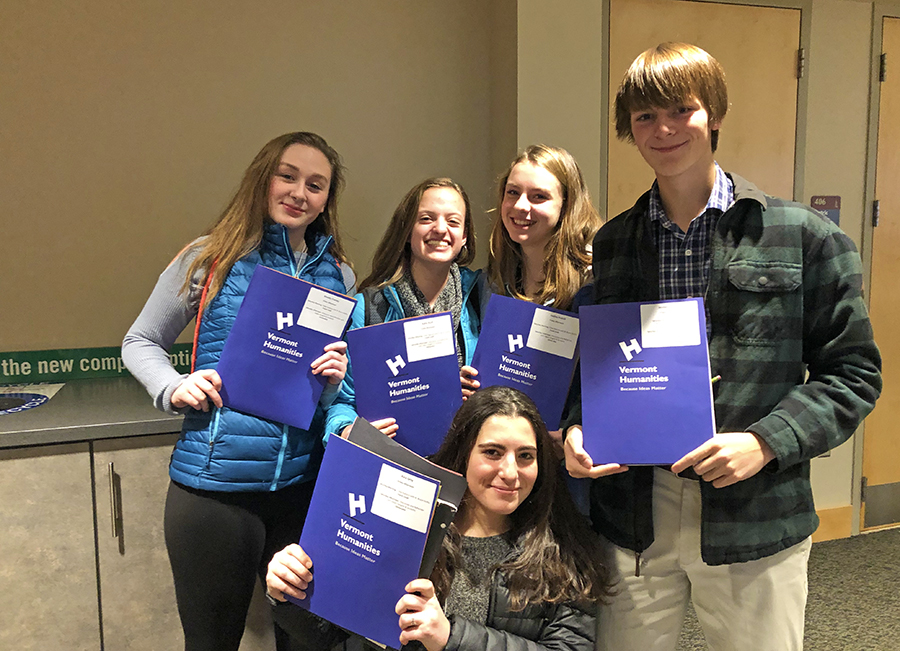Harwood students Kaia Levey, Hadley Kleitch, Winter Haberle, Katie Rush and Maddy Cheney led a session at the Vermont Council for the Humanities Conference on Saturday, November 17, in Burlington. They prepared by reading and annotating several scholarly readings by Thoreau and Hawthorne. They presented the work that Harwood has been engaged in with the Harkness Pedagogy at Harwood, and the students led a 75-minute Harkness discussion on the readings. Harwood students are making a name for themselves as they travel around the state modeling the Harkness Pedagogy.
In a Harkness class learning takes place through discussions held around a circular “Harkness table.” Sitting at the table or in a circle, all members of the class must question, contribute and contemplate in order to learn and succeed. The Harkness pedagogy places students at the center of the educational process; it fundamentally shifts the dynamics of the teacher-student relationship and places ownership and initiative for learning on the student. Based on brain research, it is grounded in the principle that “the one that does the work does the learning.”
This pedagogy promotes authentic student inquiry, equity, inclusion and the importance of diverse perspectives. In Harkness discussions, students engage with their classmates by asking questions and contributing their own thoughts. This is a process in which they must involve themselves to a much greater degree than in a teacher-directed classroom; they may not simply write down what teachers say. They must search for the ideas and information and then wrestle with that which they find. Students develop a sense of autonomy, empowerment and appreciation for diverse perspectives as all voices around the table are encouraged and valued.
Twenty-seven HUHS staff members are now working to incorporate the Harkness pedagogy into teaching and learning in their classrooms. Eighteen HUHS students have taken a special class titled Strategies in Classroom Dialogue in which they work with teachers and their peers to integrate student-driven inquiry into classrooms. As student leaders, they go into classes, work with teachers and coach their peers. All of the current freshmen and sophomores (50 percent of all current high school students) have been trained in the Harkness method. Expect to hear more about how Harwood students are using Harkness in the future.







